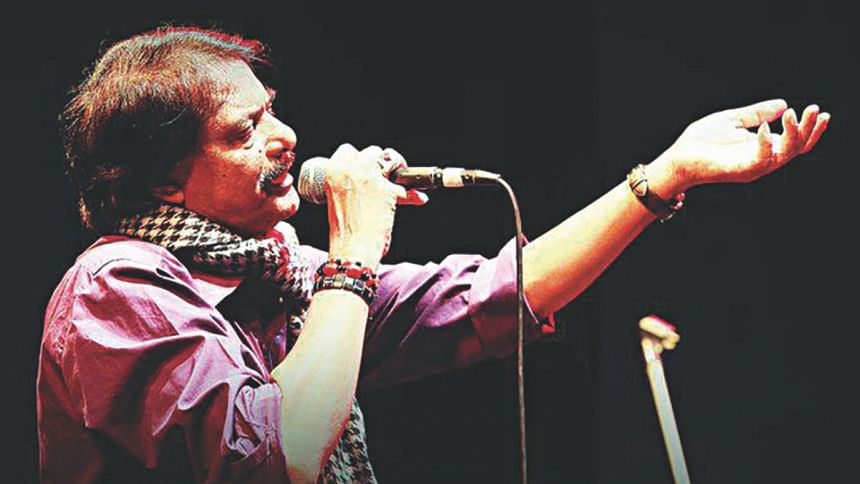Singing to freedom

The 1971 Liberation War in Bangladesh is set apart from the historical trope of violence, where Bangladeshis did not just collectively battle for a free land, but fought to protect their traditions and cultural identity. In 1971, hundreds of Bangladeshi singers risked their lives to join Shadhin Bangla Betar Kendra, the radio broadcasting centre for Bangladeshi nationalist forces, and last year the artistes were rightfully accorded recognition as Freedom Fighters. One of the many memorable voices broadcast in that year was that of Rafiqul Alam, whose fate might have been different if his path did not cross Golam Arif Tipu's.
“I did not travel to West Bengal to sing, I wanted to train and take up arms against the enemy,” Rafiqul Alam said. “At the training camp I met Golam Arif Tipu, who is the Chief Prosecutor in the Bangladesh War Crimes Tribunal today, and he pointed out that my voice was a valuable weapon. He instructed me to travel to Kolkata where Shadhin Bangla Betar Kendra's studios were just set up, and the rest, as they say, is history.”
In the crowded space of a 12 by 12 square feet room, Rafiqul Alam shared one microphone with 20 artistes or so, and recorded his first song. “We sang 'Rokto Diye Naam Likhechi', composed by Shujeyo Shyam and possibly written by Abul Kashem Sandwip. The recording appliances were rudimentary and domestic, with an Uher reel- to-reel tape recorder that might have been procured from the German Embassy, and one microphone that stood on a table in the room.”
The most significant song to come out of the humble studio was to be its last. On December 15, Rafiqul Alam joined a few other artistes once more to record “Bijoye Nishaan Urche Oi”, the first song to air in independent Bangladesh.
These victories were laced with the constant fear for their war-torn homes and families. When Rafiqul Islam returned to Rajshahi, he found his house ravaged and his family missing: “The Pakistan army and Al Badr Razakars were targeting homes of Shadhin Bangla Betar artistes, and ours did not escape their destruction. I started from Kolkata sometime in December, and although there was a ship sent from the government to carry all of us home, I chose to travel by road. Once I reached Murshidabad, I crossed a char on foot and arrived home on a small boat. Rajshahi was a small, clean divisional town, but I arrived to see the remnants of war in the demolished homes. When I eventually found my family, we had lost everything, and started a new life from scratch.”
“I feel myself change physically and mentally during the Victory month. Our triumph and happiness is tinged with sadness as we cannot escape the traumatising memories of what we had endured, and lost during the war.”

 For all latest news, follow The Daily Star's Google News channel.
For all latest news, follow The Daily Star's Google News channel. 



Comments